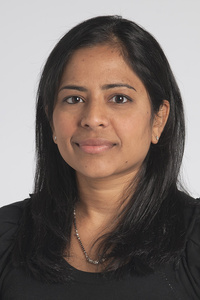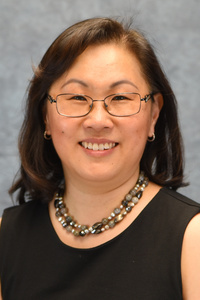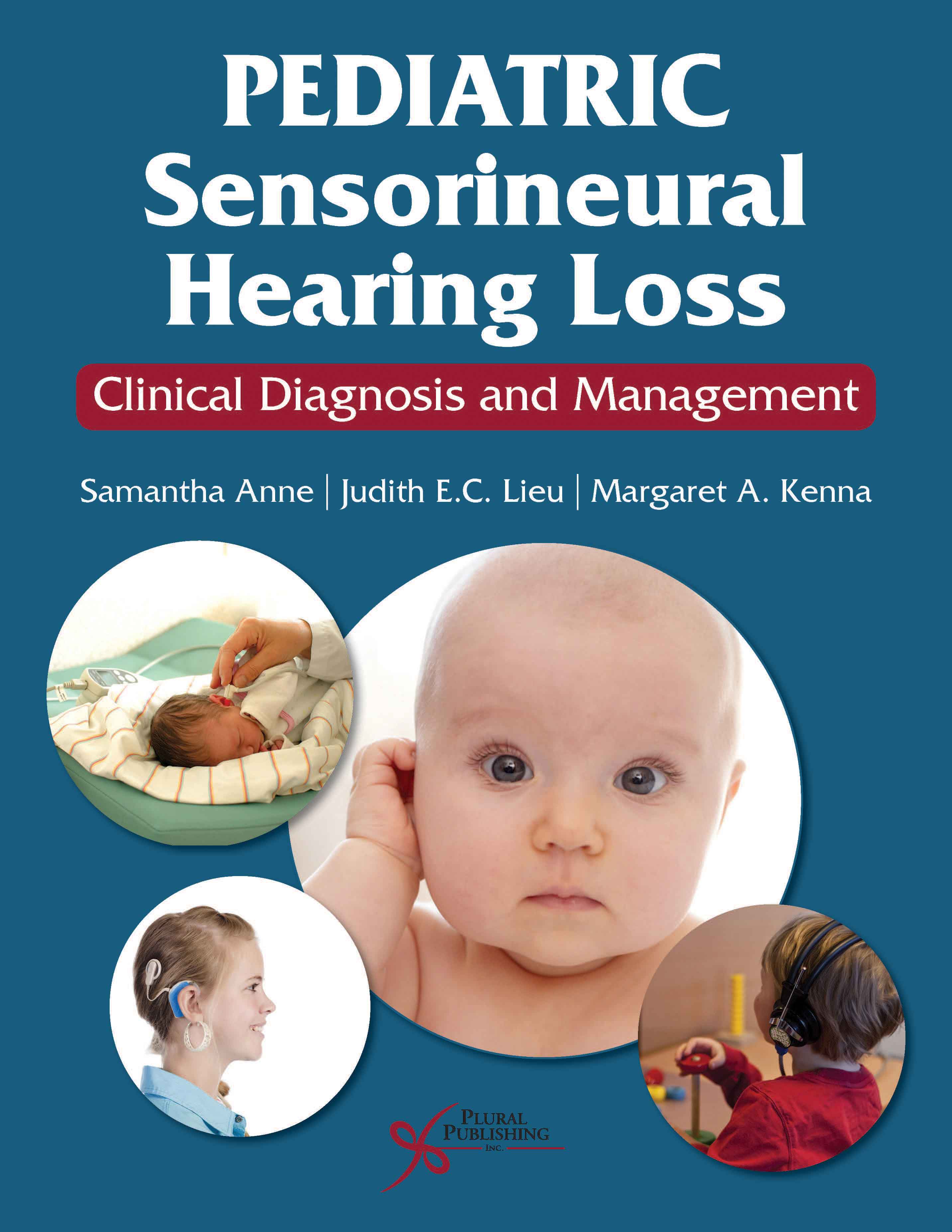
Pediatric Sensorineural Hearing Loss: Clinical Diagnosis and Management
First Edition
Samantha Anne, Judith Lieu, Margaret Kenna
Details: 250 pages, B&W, Hardcover, 7" x 10"
ISBN13: 978-1-63550-011-0
© 2018 | Available
Purchase
Pediatric Sensorineural Hearing Loss: Clinical Diagnosis and Management is a quick reference manual for pediatricians, residents, audiologists, and others who work with pediatric patients. This text distills the breadth of knowledge on this topic into one that is manageable and easily comprehensible.
Pediatric hearing loss is an incredibly complex topic replete with controversies, evolving research findings, and subtle differences in management and diagnosis with different types of hearing loss. Currently, there is no such manual for pediatric hearing loss and the literature that is available can be overwhelming and difficult to read as a quick reference. This text provides practical content for daily clinical use alongside CT and MRI images, audiograms, and algorithms.
The chapters distill this complex topic into distinct subsets such as unilateral hearing loss, congenital hearing loss, and sudden sensorineural hearing loss. Pediatric Sensorineural Hearing Loss addresses clinical questions that arise in daily practice by pediatricians and otolaryngologists and can be used by residents for preparation for in-service training exams or as a teaching tool.
Reviews
"I expected to struggle through this book, but was encouraged by the publisher's website, which did admit that this is "an incredibly complex topic" and that "the literature that is available can be overwhelming and difficult to read as a quick reference". Well, that struck a chord with this reviewer but the promise was to provide practical content for daily clinical use. Further encouragement came from chapter titles, such as the opening "Functional Consequences of Hearing Loss; What's Down Can Come Up!" or the closing "Questions with no Answers in Pediatric Sensorineural Hearing Loss". The latter title was so irresistible that my reading started on page 217. I was not disappointed.
Despite a substantial multi-author contribution, there is a uniformity of style, with some very memorable tips and messages. In this last chapter there is discussion of Central Auditory Processing Disorder and Auditory Neuropathy that is understandable and fascinating (not something easily achieved). This reviewer will long recall the playground being described as the "child's cocktail party" (You will have to read the book). Who appreciated the prevalence of noise induced hearing loss in adolescents or the relationship between hearing loss and global developmental delay?
Hooked by now (and I admit pleasantly surprised) did now go back to read from the start. Again, memorable phrases such as "we hear with our brain, not our ears" summarise the message, but are so memorable for clinical use. A short but "punchy" chapter is clever in addressing the limitations of Newborn Hearing Screening. Audiometric evaluation is throughout pitched at a level which a simple surgeon can follow. A chapter on imaging has all the nice images of malformations we would expect, but, again, it is the text that is novel in addressing their clinical value. The content is then summarised in a nice Overview Chapter, containing a single algorithm on investigation of a new diagnosis, which alone justifies the textbook. Genetic Hearing Impairment is presented in a style that is comprehensive, informative and even readable (and that is quite challenge to meet). "Infectious Etiology" is sufficiently updated to include Zika virus and, amongst no fewer than 208 references, several from 2017.
Management tends to concentrate for more on amplification than cochlear or brainstem implants, which I had expected to dominate the book. This book is then really different. It is a Paediatric audiology textbook which is targeted beyond paediatric Audiologists. It is easy to read from beginning to end (unless you follow my example) and is not just quick reference to dip into. It deals with a topic that is often overlooked in what is surgical training, but which frequently arises in those final examinations. It is far too good for trainees alone and I would recommend this to the most senior, expert, clinician who has any contact with hearing impaired children."
—Liam M Flood, FRCS FRCSI, Middlesbrough UK, in the Journal of Laryngology and Otology (December 2017)
"Not only is Pediatric Sensorineural Hearing Loss extremely informative, it is also exceptionally easy to read due to the clever structuring of sections and chapters. The authors have very cleverly divided the book into sections that almost perfectly follow the course of a child from diagnosis through to management. This allows the more experienced reader to easily navigate the book whilst allowing someone reading the book from cover to cover the ability to improve their knowledge of paediatric hearing loss in a very logical and step-wise manner. The book has several very useful sections and reference tables/figures for specific areas such as key milestones in hearing, comprehension and speech production, newborn hearing screening and a very useful handful of chapters on the manifestation and management of various causes of hearing loss, both acquired and congenital. I would thoroughly recommend the book to anyone interested in the field of paediatric audiology, both as a source of reference for clinicians already working in the field, or for students/trainees looking to increase their knowledge of paediatric hearing loss. the book represents excellent value for money as the authors clearly have an invaluable understanding of the field, exemplified by five words at the beginning of chapter 4, which should be the mantra of any paediatric audiologist, "Children are not little adults". Every department should have a copy."
—Adam Walker, Clinical Scientist (Audiology), Central Manchester University Hospitals, NHS Foundation Trust, Trafford General Hospital, Manchester, UK, in ENT & Audiology News, Vol. 27, No. 4 (September/October 2018)
This book accurately details practice information along with diagnostic and therapeutic recommendations for pediatric sensorineural hearing loss. It is presented in a format that parallels a workup, beginning with signs and symptoms, then diagnostic workup, treatment options, and, finally, future directions for research and change.
The book is purposed to provide information regarding the vast disease spectrum of pediatric sensorineural hearing loss. It is aimed to do so in a way that is comprehensive and serves as a single reference for those who are interested in learning more about this particular disease. These are objectives which are well-defined and well-accomplished in this particular book.
The book is directed at both residents in an otolaryngological program hoping to learn about sensorineural hearing loss in children and those already familiar with the disease who wish up-to-date information. It is written at an appropriate level for these audiences and is accessible to both. The authors and their contributors have a well-respected base of knowledge in the field, both as publishers of many papers on the subject, as well as being widely recognized in professional circles. These credentials lend considerable weight to the book and ensure its accuracy and depth.
The book covers the workup, diagnosis, and treatment of various causes of pediatric hearing loss in a clear and concise way. The multitude of references at the end of every chapter makes further reading easy to identify and access. The accompanying charts and figures are pertinent without detracting from the text or providing overly detailed information that does not add to the overall understanding.
This is a well-written guide that is appropriate for otolaryngology residents or fellows hoping to gain insight into the disease process, workup, and treatment of this condition and for attending otolaryngologists who will find a good recapitulation of existing and newly emerging knowledge. 4 stars!"
—Alan Micco, MD, Northwestern University Feinberg School of Medicine, in DOODY'S (February 2018)
"The editors have created a wonderful text which can be used as a primer textbook or reference text with a multi-author, multi-disciplinary format. The organization is logical and provides insights which cross specialty domains. The organization format does include overlap in topic content among the chapters but progresses overall in a systematic fashion.
[...] overall this is an outstanding textbook which is a "must-read" for audiologists, speech pathologists, residents, and pediatric otolaryngologists, and otologists involved in the care of children with sensorineural hearing loss. I would recommend use of this book to be read from cover-to-cover as a current overview of the topic, but also as a reference text."
—Moises A. Arriaga, MD, FACS, Louisiana State University, in Otology & Neurotology (October 2018)
Introduction
Contributors
Part I. Diagnosis and Presentation
Chapter 1. Functional Consequences of Hearing Loss: What's Down Can Come UP!
Donald M. Goldberg
Chapter 2. Presentation of Pediatric Hearing Loss
Malika Atmakuri and Kathleen C.Y. Sie
Chapter 3. Newborn Hearing Screening
Zaahir Turfe and Karen Jo Doyle Enright
Chapter 4. Audiometric Evaluation of Pediatric Hearing Loss
Derek J. Stiles
Chapter 5. Imaging for Pediatric Sensorineural Hearing Loss
Jordan C. Schramm and John A. Germiller
Part II. Evaluation
Chapter 6. Evaluation of Pediatric Hearing Loss: Overview
Kaelan Black and Diego Preciado
Chapter 7. Genetic Hearing Impairment
John H. Greinwald, Jr.
Chapter 8. Evaluation of Pediatric Hearing Loss: Infectious Etiology of Hearing Loss
Nicole Leigh Aaronson and David H. Chi
Chapter 9. Evaluation of Hearing Loss: Acquired Hearing Loss
Daniel I. Choo
Part III. Management
Chapter 10. Management of Pediatric Sensorineural Hearing Loss
Patricia J. Yoon and Kristin Uhler
Chapter 11. Sudden Sensorineural Hearing Loss (SSNHL)
Carol J. MacArthur
Part IV. Future Directions
Chapter 12. Questions with No Answers in Pediatric Sensorineural Hearing Loss
Blake C. Papsin, Sharon L. Cushing, Adrian L. James, Robert V. Harrison, Salima Jiwani, and Karen A. Gordon
Index
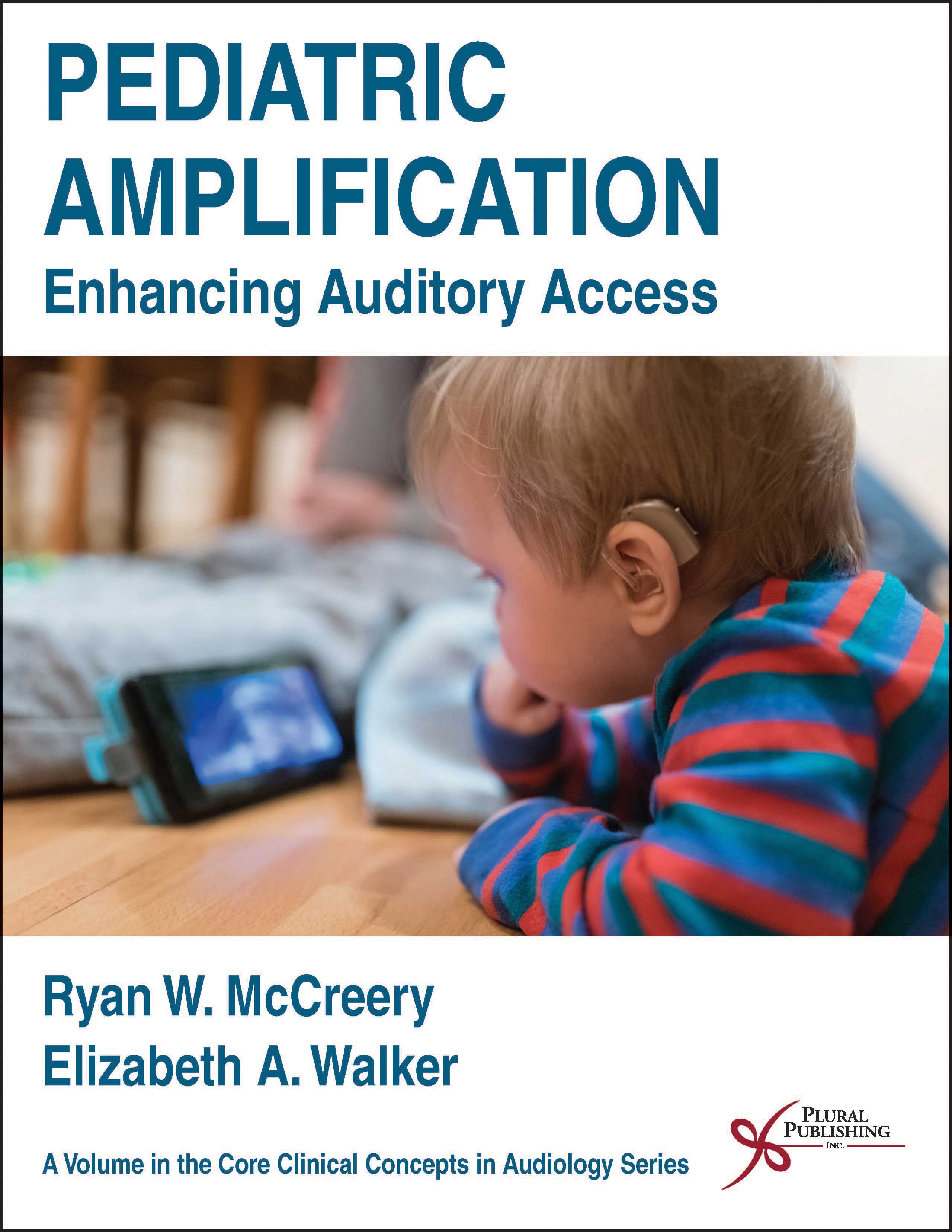
Pediatric Amplification: Enhancing Auditory Access
First Edition
Ryan W. McCreery, Elizabeth A. Walker
Details: 272 pages, B&W, Softcover, 8.5" x 11"
ISBN13: 978-1-59756-992-7
© 2017 | Available
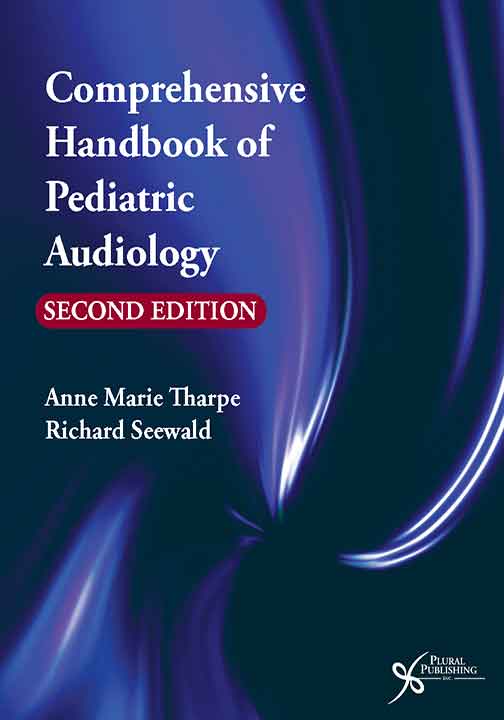
Comprehensive Handbook of Pediatric Audiology
Second Edition
Anne Marie Tharpe, Richard Seewald
Details: 1003 pages, B&W, Hardcover, 8.5" x 11"
ISBN13: 978-1-59756-615-5
© 2017 | Available
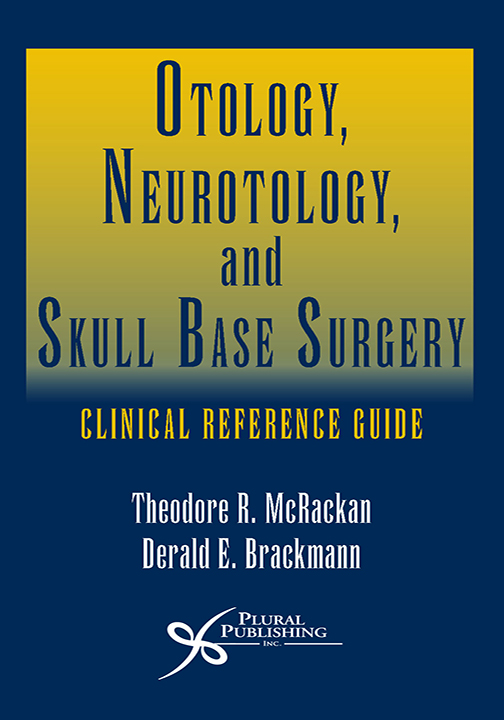
Otology, Neurotology, and Skull Base Surgery: Clinical Reference Guide
First Edition
Theodore R. McRackan, Derald E. Brackmann
Details: 593 pages, B&W, Softcover, 4.5" x 8"
ISBN13: 978-1-59756-651-3
© 2016 | Available
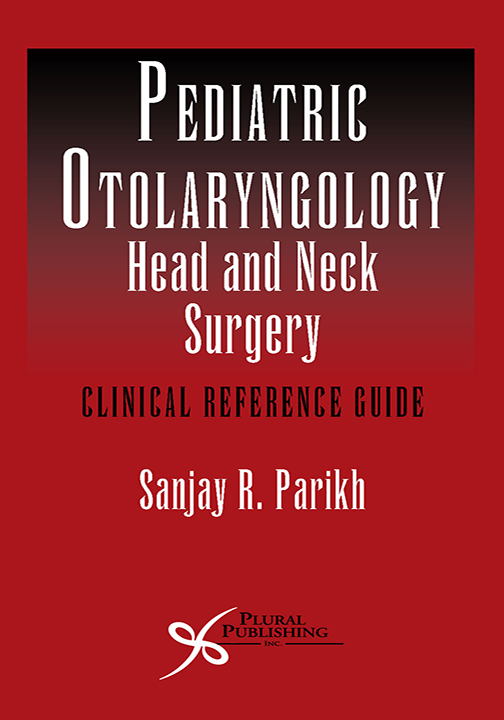
Pediatric Otolaryngology-Head and Neck Surgery: Clinical Reference Guide
First Edition
Sanjay R. Parikh
Details: 752 pages, B&W, Softcover, 4.5" x 8"
ISBN13: 978-1-59756-528-8
© 2014 | Available
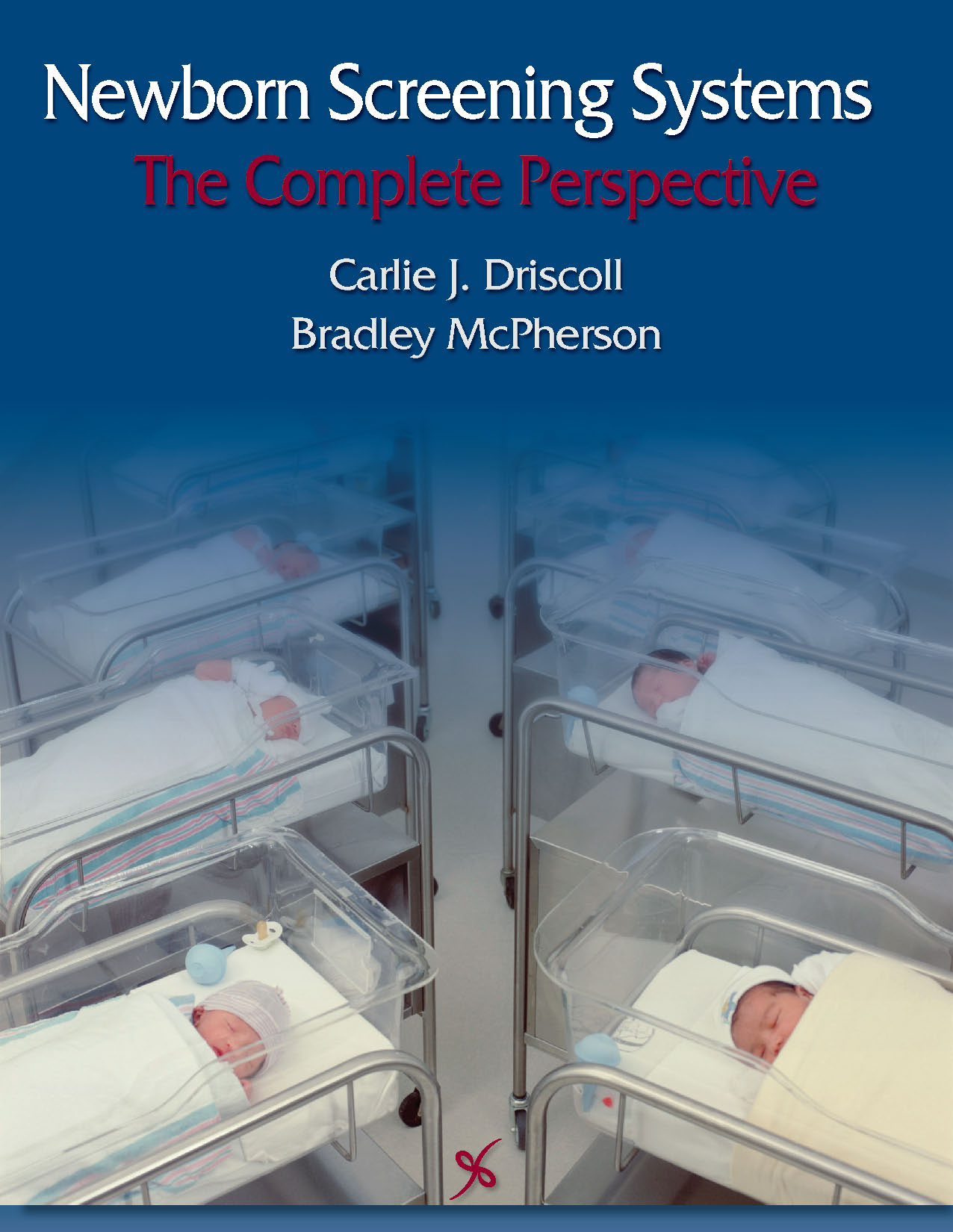
Newborn Screening Systems: The Complete Perspective
First Edition
Carlie Driscoll, Bradley McPherson
Details: 245 pages, B&W, Softcover, 8.5" x 11"
ISBN13: 978-1-59756-318-5
© 2010 | Available
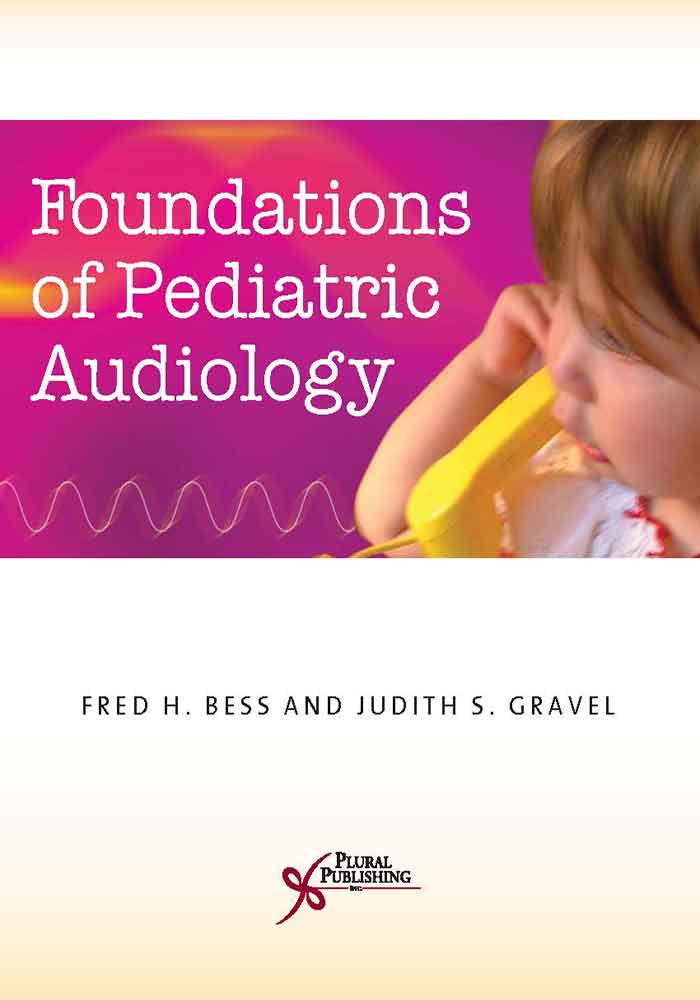
Foundations of Pediatric Audiology
First Edition
Fred H. Bess, Judith Gravel
Details: 507 pages, B&W, Softcover, 8.5" x 11"
ISBN13: 978-1-59756-108-2
© 2006 | Available

